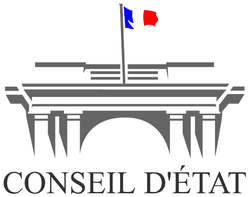
French Council of State
May 15, 2012, Association Vent de colère! Fédération nationale et autres, n°324852
Complete reference: CE, May 15, 2012, Association Vent de colère! Fédération nationale et autres, n°324852
To read the decision, click here.
French Law of 10 February 2000 relative à la modernisation et au développement du service public de l’électricité (on the modernization and development of public service of electricity), as the result of a reform of a law of 13 July 2005 relative à la politique énergétique (on energy policy), requires Electricite de France (EDF ) to purchase electricity from any producer who requests it, especially when its use of renewable energy facilities.
Laws organize the conditions of purchase, particularly financial, which take into account costs and contribution to the development of renewable energy. The additional costs arising from these multiple constraints are compensated for the buyer.
An association attacks before the Conseil d’Etat (French Council of State) the ministerial Order, pursuant of the legal system, fixed tariff and compensation. The Syndicat des énergies renouvelables (Renewable Energy Association) is involved in the proceeding, having interest in maintaining the tariff.
The Council of State ruled that European Union Law prohibits state aid, under Article 87 of the Treaty. The national jurisdiction points out that Article 88 stipulates that the European Commission works with Member States for the respect of this principle and, if it is necessary, opens procedure for compliance.
The State Council affirmed that it is the responsibility of the European Commission, under the control of the European Court of Justice, to assess whether aid paid by the State is or is not compatible with EU Law , but it falls to the administrative national court to invalidate or not the provisions establishing such assistance without providing a correlated obligation to notify the Commission, prior to any enforcement action.
However, orders attacked organize a benefit to the producers of electricity by wind energy. In the context of liberalization of European energy sector, this advantage is likely to affect competition between member states. The Conseil d’Etat examined a number of decisions of the European Court of Justice and noted that any does not match the case before it.
In these conditions, the Council of State formulated the question whether the compensation for additional costs imposed on EDF due to the purchase obligation for the benefit of wind power producers at a price higher than the market price, is or is not state aid, which should have been notified to the European Commission, before any implementation.
Affirming that this is a serious difficulty, the Conseil d’Etat shall suspend the proceeding and the seized Court of Justice for a preliminary ruling.
___________________
Brief commentary
Energy is a highly political sector.
The case currently is an illustration of this.
The European Directive of 19 December 1996 established the principle of liberalization of the energy sector. As shown in this judgment of the French State Council, this reference to free and competitive market is always first. But French law transposing the Directive, dated February 10, 2000, on which the judgment of the State Council also refers, took the title (and therefore subject) "public service of electricity" . We know that between competition and public service, there are often difficult relationships, both in politics and economics, especially between prices and rates.
Moreover, an "energy policy" is added. It exists both at the national level, here in France but the observation can be generalized to all Member States, and at the European Union level. In this "energy policy", choices are made, for example the incentive to promote renewable energy.
Under this "energy policy", the French law, taking the approach, obliges the public operator, EDF, to buy the more expensive electricity from wind power, prompting producers to look to this type of production. But EDF is subject to competition, because the sector is liberalized, and the right to obtain compensation for bearing the consequences of an energy policy in respect of which he is abroad, is organized by French Law.
From the standpoint of competition, it could be state aid. From the perspective of energy policy, it could be a public service compensation, the operator is neutral and the compensation, by translation, justified to neutralize the charge.
Beyond the technical issue, the case goes back to the central question: is the energy a legal issue first and foremost a question of of competitive market, or does it belong to politics?

comments are disabled for this article